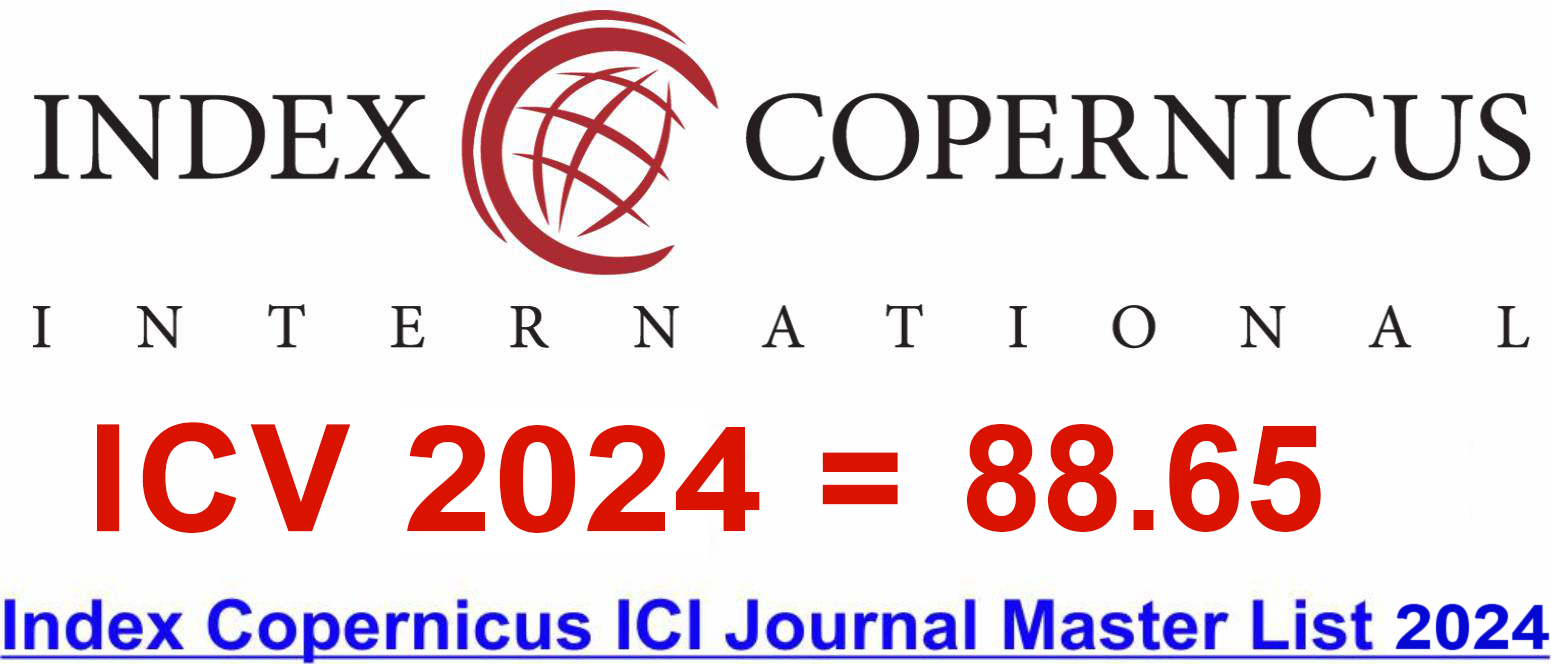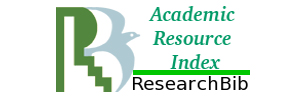Abstract
Capacity building and education are intertwined fields where success in the latter becomes impossible without the former. Capacity building is the process of developing the skills, knowledge, and abilities of the individuals with resource planning to improve their performance and effectiveness. Education is the process of improving critical thinking, awareness, and knowledge enhancement within the conceptual framework of the curriculum. In this digitalisation era, where education is a powerful weapon, its accommodation is fruitless without capacity building. If education is a means of attaining individual empowerment, capacity building is the means of attaining the right knowledge and the right skill set through collaborative networks and training programmes, which act as the foundation to achieve greater heights, matching the dynamics of the society for professional development by meeting the diverse student needs. This paper provides an in-depth analysis of this needful concept through an introduction, a review of literature, the present scenario, the role of various organisations in capacity building in education, an analysis and discussion, and suggestions. It concludes with a future scope that enumerates the possible effects of adopting the mentioned suggestions.
References
- Karunanayaka SP. Blending Innovative Pedagogy and Technology for Capacity Development of Educators during the Pandemic. Journal of Learning for Development. 2023;10(1):24-37. https://doi.org/10.56059/jl4d.v10i1.783
- Laurillard D. Teaching as a design science: Building pedagogical patterns for learning and technology. Routledge; 2013 Jun 19. https://doi.org/10.4324/9780203125083
- Viczko M. A rich seam: how new pedagogies find deep learning by Michael Fullan and Maria Langworthy. Leadership and Policy in Schools. 2016;15:1-4. https://doi.org/10.1080/15700763.2015.1073331
- Voogt J, Erstad O, Dede C, Mishra P. Challenges to learning and schooling in the digital networked world of the 21st century. Journal of computer assisted learning. 2013 Oct;29(5):403-13. https://doi.org/10.1111/jcal.12029
- Korthagen F. Inconvenient truths about teacher learning: Towards professional development 3.0. Teachers and teaching. 2017 May 19;23(4):387-405. https://doi.org/10.1080/13540602.2016.1211523
- Sehgal A. Capacity building: what to do when it is time to grow? (Acquisition analysis) [Internet]. LinkedIn; 2023 Nov 18 [cited 2025 Jan 16]. Retrieved from: https://www.linkedin.com/pulse/capacity-building-what-do-when-time-grow-acquisition-analysis-sehgal-rgr3c/
- Agnihotri S, Rameshan R. Industry and academia: a better model of engagement may uplift research, productization and student quality [Internet]. Curriculum Magazine; 2023 Jun 13 [cited 2025 Apr 18]. Retrieved from: https://curriculum-magazine.com/industry-and-academia-a-better-model-of-engagement-may-uplift-research-productization-and-student-quality/
- Andrews J, Higson H. Graduate employability,‘soft skills’ versus ‘hard’business knowledge: A European study. Higher education in Europe. 2008 Dec 1;33(4):411-22. https://doi.org/10.1080/03797720802522627
- Jelonek M. Universities and the labour market: Graduate transitions from education to employment. Routledge; 2021 Dec 30. https://doi.org/10.4324/9781003161486
- Robles MM. Executive perceptions of the top 10 soft skills needed in today’s workplace. Business communication quarterly. 2012 Dec;75(4):453-65. https://doi.org/10.1177/1080569912460400
- Succi C, Canovi M. Soft skills to enhance graduate employability: comparing students and employers’ perceptions. Studies in higher education. 2020 Sep 1;45(9):1834-47. https://doi.org/10.1080/03075079.2019.1585420
- Yong BP, Ling YL. Skills gap: The importance of soft skills in graduate employability as perceived by employers and graduates. Online Journal for TVET Practitioners. 2023 Mar 30;8(1):25-42. https://doi.org/10.30880/ojtp.2023.08.01.003
- Prakash S, Muniammal MM, Maruthavanan M, Sundar N, Thangavel MK, Kumar MS. EDUCATION 5.0: REVOLUTIONIZING LEARNING FOR THE FUTURE.
- Sahabuddin R. The Role of Soft Skills Training on Employability with Self-Efficacy as an Intervening Variable: A Study on Management Students at Makassar State University. Economics and Business Journal (ECBIS). 2024 Oct 30;2(5):383-94. https://doi.org/10.47353/ecbis.v2i5.149
- McQuillan N, Wightman C, Moore C, McMahon-Beattie U, Farley H. Developing resilient graduates to be future workplace leaders. Higher Education, Skills and Work-Based Learning. 2021 Feb 2;11(1):214-27. https://doi.org/10.1108/HESWBL-11-2019-0162
- Blackmore A, Kasfiki EV, Purva M. Simulation-based education to improve communication skills: a systematic review and identification of current best practice. BMJ simulation & technology enhanced learning. 2018 Oct 4;4(4):159. https://doi.org/10.1136/bmjstel-2017-000220
- Wankhade RS. Higher education and nep-2020. International Journal of Researches in Social Science and Information Studies. 2021 Aug 18;8(1):51-6.
- Dey N. National Education Policy (NEP) 2020 on transforming education: a critical analysis of recommendations on school, teacher and higher education. Journal of Indian Education. 2022;48(1):187-200.
- Sreelatha G, Atmakuri R. Role of ICT and Multi-Disciplinary Approaches to Enhance Quality Education in India to Implicate Business Creations. International Journal of Advances in Business and Management Research (IJABMR). 2024 Sep 12;2(1):1-8. https://doi.org/10.62674/ijabmr.2024.v2i01.001
- Dwivedi M. Development And Validation Of ‘Teaching-Innovate’: A Capacity Building Program. https://doi.org/10.53555/kuey.v30i1.6569
- Kulal A, Nanjundaswamy A, Dinesh S, Suraj N, Mallika N. Advancing teacher competencies: assessing the influence of faculty development programs (FDP) on embracing modern innovations in teaching. Journal of Applied Research in Higher Education. 2024 Jul 9;16(4):1301-23. https://doi.org/10.1108/JARHE-01-2024-0004
- Fedeli M, Taylor EW. The impact of an active-learning designed faculty development program: A students' perspective of an Italian university. Tuning Journal for Higher Education. 2023;11(1):151-74. https://dx.doi.org/10.18543/tjhe.2513
- Maseeh M. Innovations and new reforms in teacher education: adapting to vision of national education policy (nep) 2020. Vidya-a journal of Gujarat University. 2023 Nov 16;2(2):262-6. https://doi.org/10.47413/vidya.v2i2.269
- Jun L, Jingwen W, Quipeng L. The Resilience and Renewal Strategies Employed by Macau's Small Businesses to Survive and Thrive During the Covid-19 Crisis: A Comprehensive Review. International Journal of Advances in Business and Management Research (IJABMR). 2024 Jun 12;1(4):1-7. https://ejournal.svgacademy.org/index.php/ijabmr/article/view/37/91















